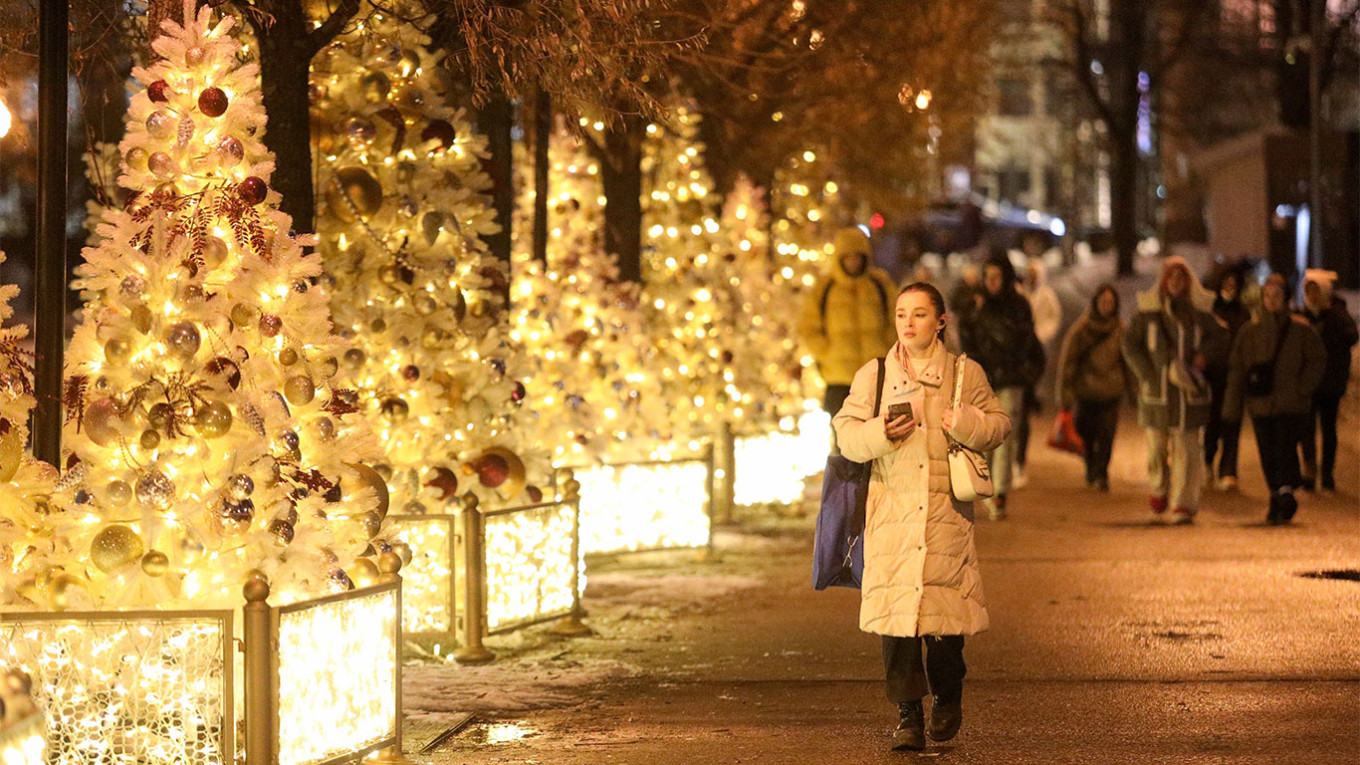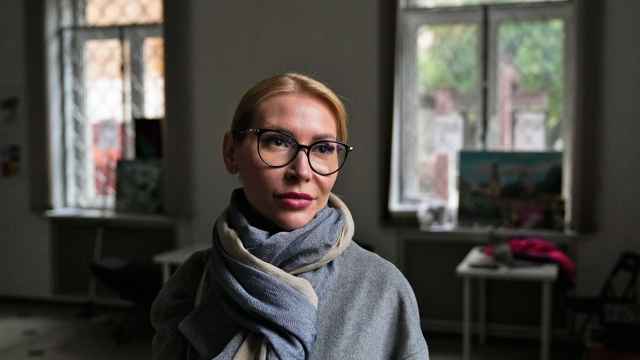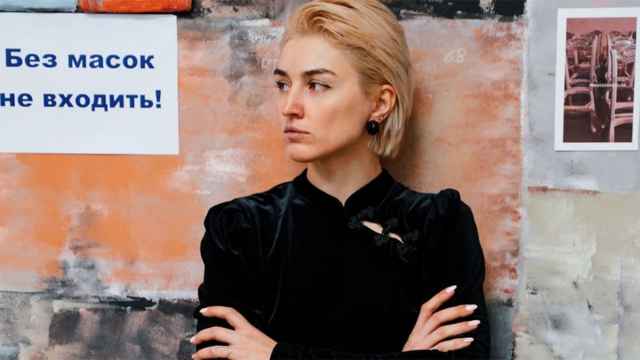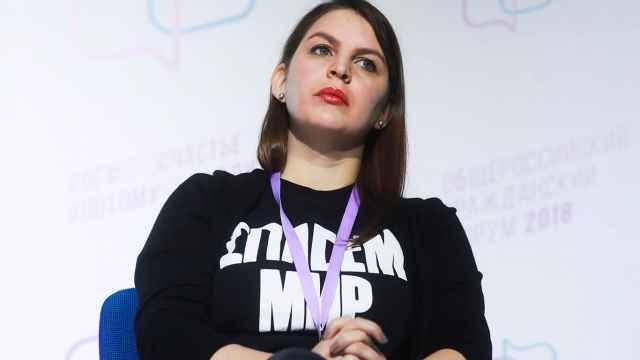In 2023, Russian authorities actively advocated for increased childbearing among women and intensified their stance against abortion while also promoting the idea that the role of a woman is to be a homemaker.
Yet women were also changemakers, with the wives and mothers of mobilized soldiers becoming a leading voice of dissent toward the end of the year and some women launching bids for the presidency.
Here are some highlights of the year for Russian women:
Russian officials promote motherhood
Several Russian officials, including the country's health minister, voiced the opinion that a woman should first focus on having children before pursuing other goals. The rhetoric came amid a governmental push for conservative values as the war in Ukraine increasingly impacted Russia’s domestic policy.
In July, Health Minister Mikhail Murashko criticized the societal expectation for women to pursue their education and careers over families. “Many problems arise as a result: infertility, miscarriage, IVF. Reduced time for the birth of the third or fourth child,” Murashko said. “The situation should be reviewed.”
State Duma Deputy Chairman Anna Kuznetsova said in October that Russian women should aim to have their first child by age 20.
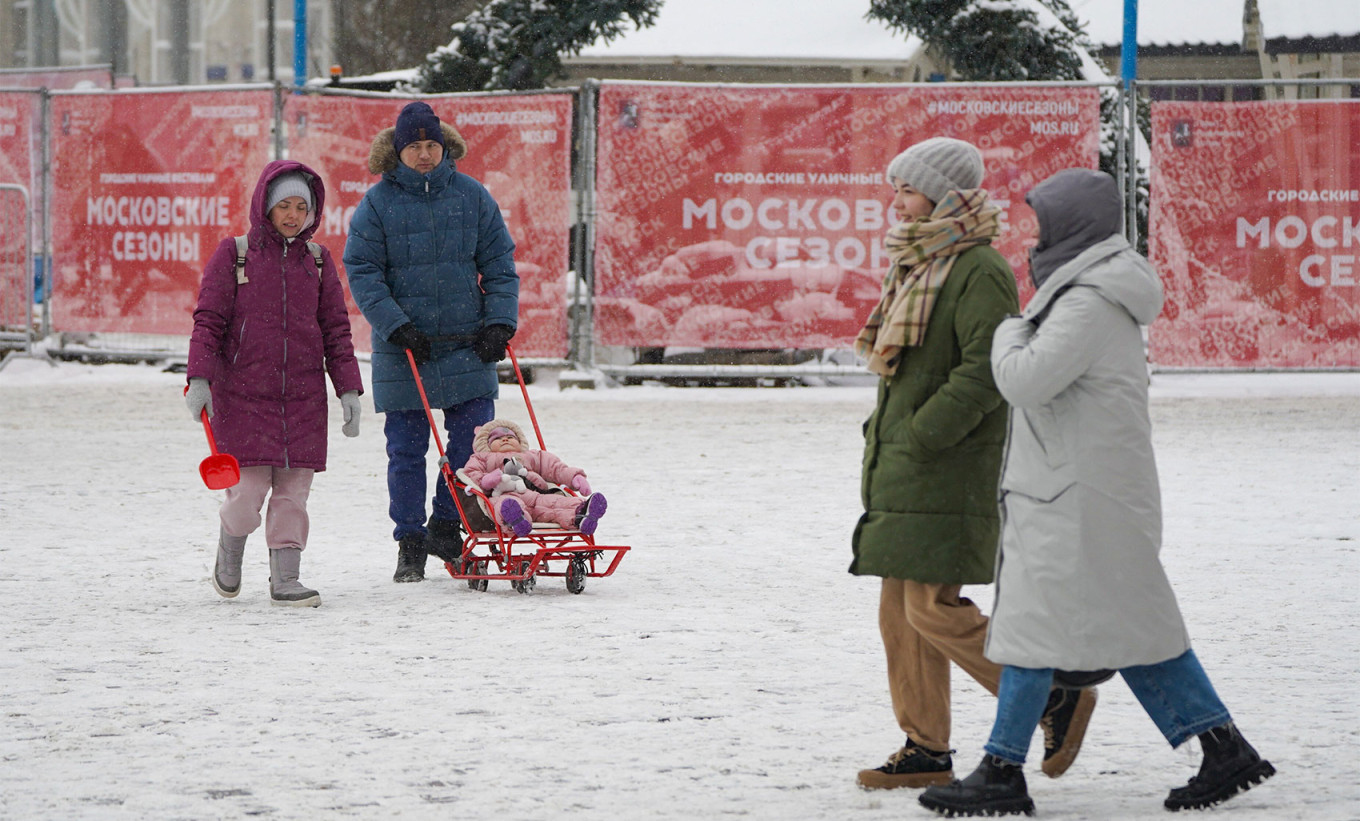
Lawmaker Margarita Pavlova suggested that the country should shift its encouragement from prioritizing education to promoting childbirth to address its demographic challenges.
"Now, when education comes first in the value system and family and marriage come second, we have a skew. These values need to be reversed: having children and family should come first. We have our first child at 30, if not 40 years old. Because at one time, a woman was told that if she did not get an education, she would be lost in this life,” Pavlova said.
Birth control in Russia
In recent months, Russia appears to be pushing an anti-abortion agenda with several Russian regions outlawing the so-called act of “coercing women” into having an abortion or banning the procedure in private clinics.
In July, the Health Ministry announced an initiative to control the circulation of abortion-inducing drugs in pharmacies, saying that although the number of abortions has already decreased significantly, it could be reduced even further.
Around a dozen Russian regions, including the republics of Tatarstan, Mordovia and Komi, have introduced or are discussing anti-abortion measures.
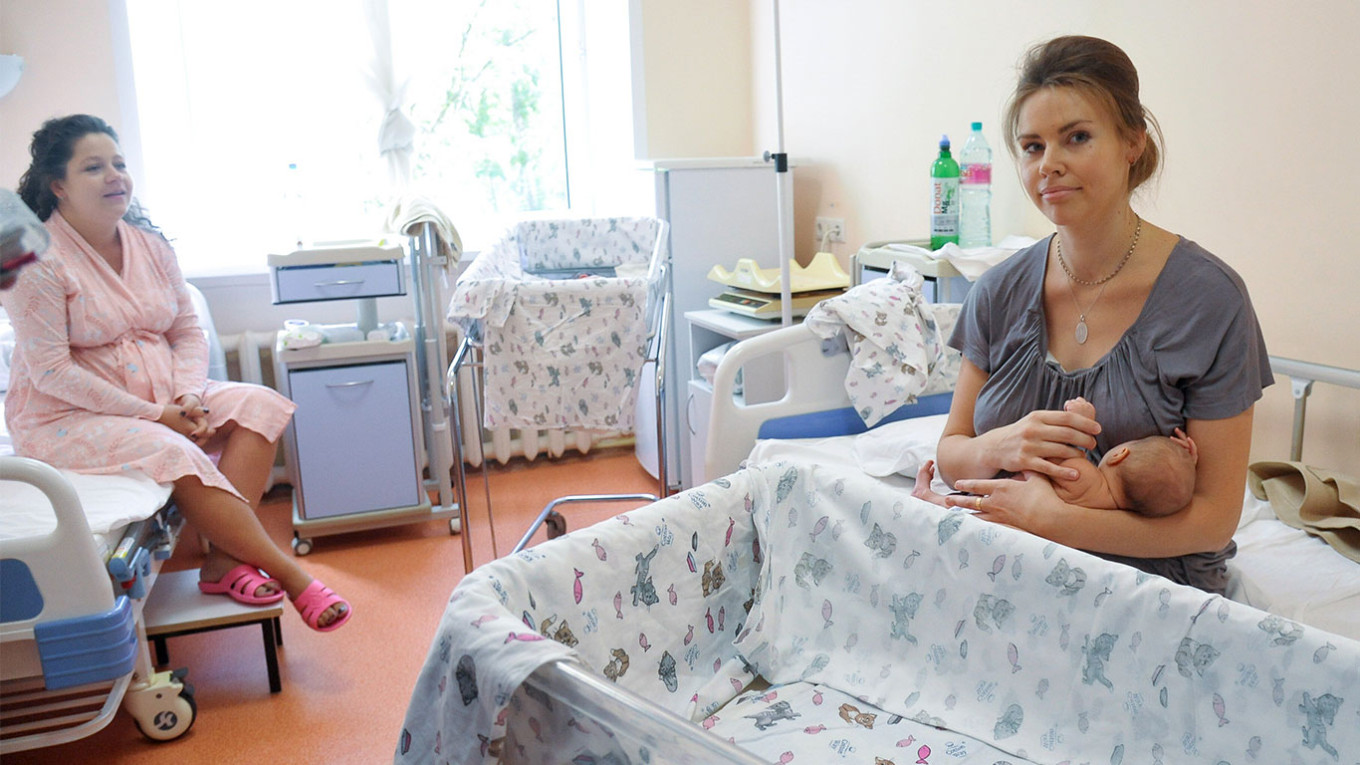
But in December, Russian lawmakers rejected a bill that would bar all private clinics nationwide from providing abortions. Members of the State Duma’s Public Health Committee insisted that a woman's right to choose where she has an abortion — be that at a private or state-run medical facility — should be preserved.
Lawmakers also emphasized the need to expand pre-abortion counseling services, although activists argue that these services have been established to discourage women from undergoing the procedure.
Asked about rumors of a nationwide abortion ban during his end-of-year press conference, President Vladimir Putin said: "Our demographic problem would have been resolved if women chose to keep the life of the child after finding out they’re pregnant," adding, however, that he supports reproductive rights.
Domestic violence against women
Domestic violence against women remains a problem in modern Russia. While the authorities are still reluctant to adopt legislation to combat it, activists also warn that the war in Ukraine and the “normalization of violence” among soldiers who returned from the front might lead to an increase in incedents of abuse.
This year, Russia also witnessed several cases when women were trying to flee domestic violence at home in the North Caucasus, a conservative, predominantly Muslim part of Russia.
In one case, Seda Suleimanova, who fled the Muslim-majority region of Chechnya last year following death threats from her family, was forcibly returned to her home.
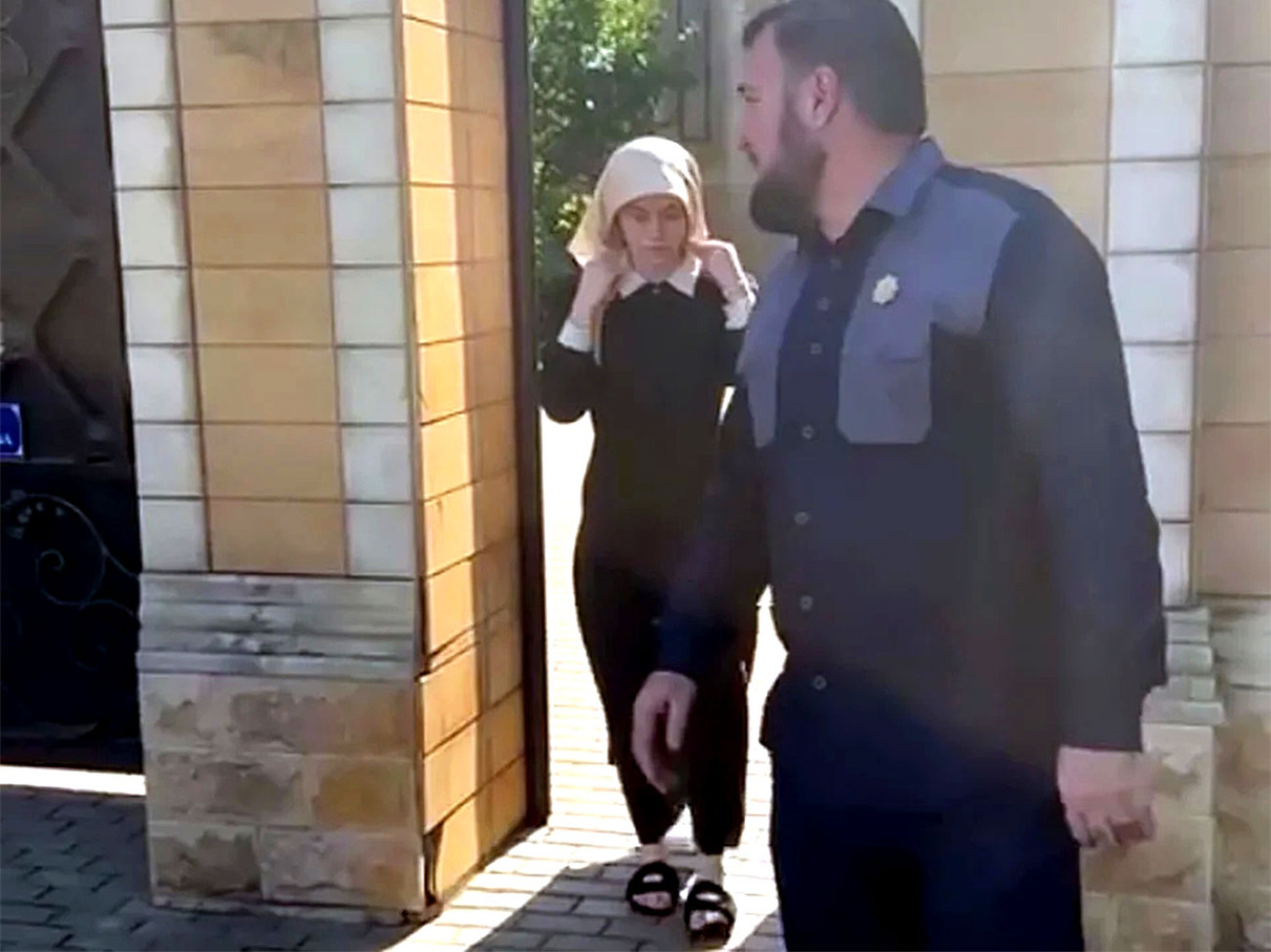
Another young Chechen woman, Selima Ismailova, was detained at Moscow’s Vnukovo Airport after attempting to flee from her abusive family in Russia in June and returned home.
Last month, police in Armenia briefly detained Fatima Zurabova, 21, who fled from domestic violence in the republic of Ingushetia.
Russian women demand return of their men from Ukraine front
The fall 2022 mobilization of 300,000 reservists for the war also had a significant impact on Russian women. This year, a growing movement of women has been demanding the return of their loved ones. Some wives and mothers of Russian mobilized soldiers also said that the authorities had pressured them for being vocal about mobilization problems.
In November, a group of women held an anti-mobilization protest in the Siberian city of Novosibirsk, though similar protests planned in Moscow and St. Petersburg were denied authorization.
Female relatives of the fighters also published an appeal to the Russian authorities demanding “a complete demobilization.”
“Civilians should not take part in hostilities,” the statement said.
“We do not impose political choices regarding power or attitude towards the armed conflict in Ukraine. Everyone has the right to decide for themselves. However, we will support the one who returns our men to us,” it said. “We are determined to get our men back at any cost.”
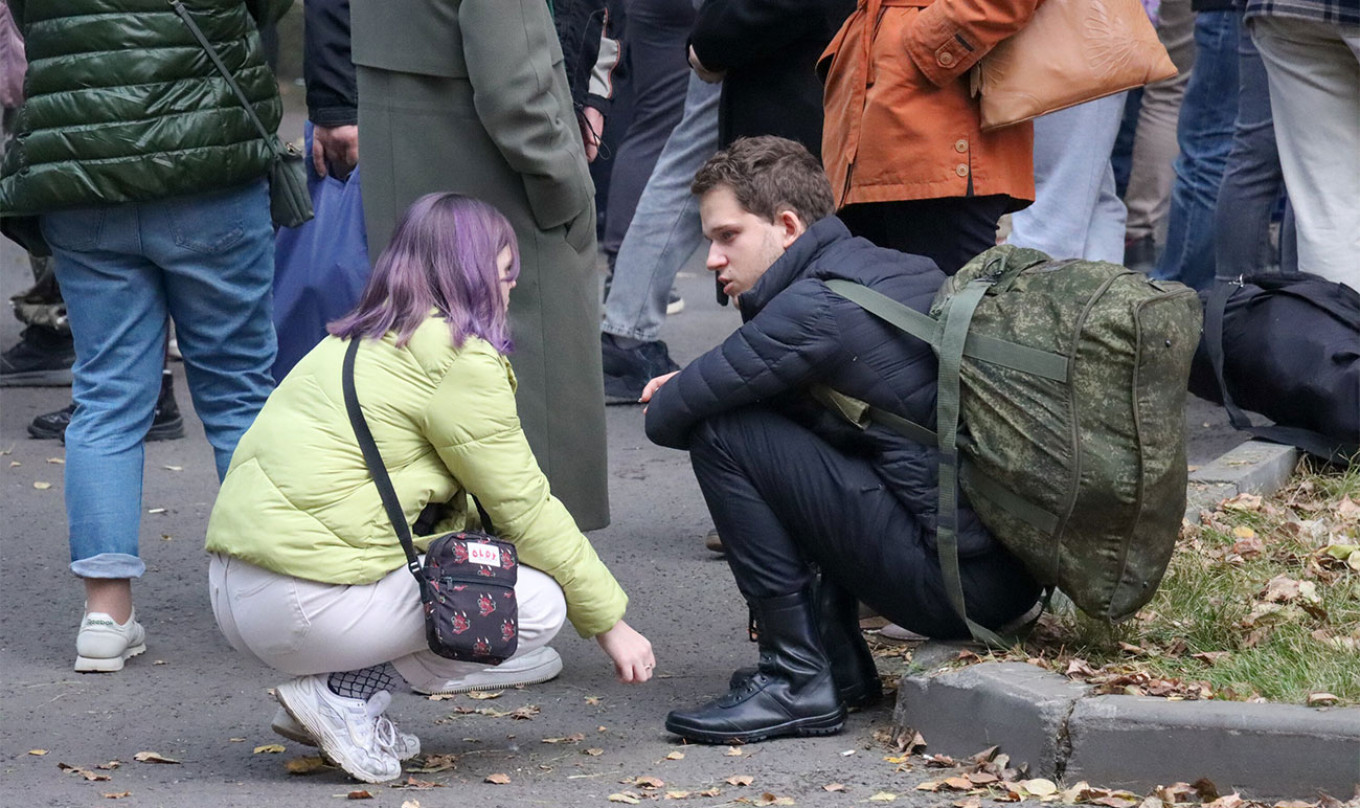
Russian women recruited to war in Ukraine
Russia’s Defense Ministry launched a recruitment campaign targeting women for roles as doctors, nurses and cooks in the military with the slogan “sign a contract with the Russian Defense Ministry in the same ranks as men.”
In the Belgorod region bordering Ukraine, authorities also recruited female fighters for defense units.
The Borz Battalion of Redut, a mercenary group under the control of the Defense Ministry, posted an advertisement on Russian social media seeking women for combat roles in Ukraine, the investigative news outlet iStories reported in October.
In March, reports said that inmates from Russian women’s prisons were being recruited to serve in Ukraine.
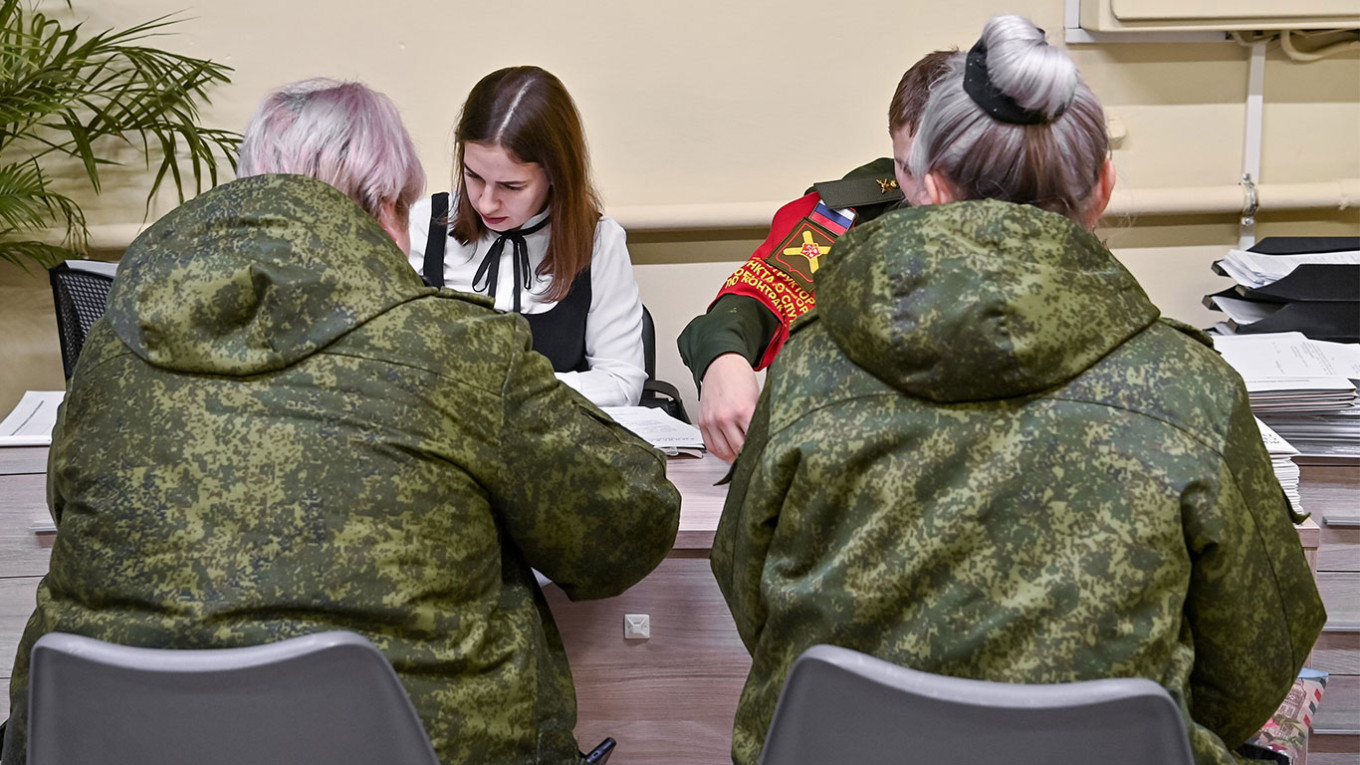
Women running for the presidency
While Russian officials push for a more conservative role for women, the country’s presidential campaign cycle has seen at least four women announce their bid for the presidency.
Yekaterina Duntsova, a journalist and local politician from the Tver region northwest of Moscow and a single mother of three, declared her intention to run for the presidency in November.
In a recent interview, she told The Moscow Times that her age, gender and lack of experience in Moscow politics could play to her advantage in the upcoming race.
This month, the Central Election Commission (CEC) rejected her nomination documents and the Supreme Court later rejected her appeal, but Duntsova said that she planned to launch a political party “to make our voice heard.”
“This will be the party of everyone who is for peace, freedom and democracy,” Duntsova said.
Public figure Alexandra Tishchenko, who also announced her bid for the election, was rejected by the CEC. Blogger Rada Russkikh and Irina Sviridova, nominated by the Democratic Party of Russia, will now have to collect enough signatures for the election.
A Message from The Moscow Times:
Dear readers,
We are facing unprecedented challenges. Russia's Prosecutor General's Office has designated The Moscow Times as an "undesirable" organization, criminalizing our work and putting our staff at risk of prosecution. This follows our earlier unjust labeling as a "foreign agent."
These actions are direct attempts to silence independent journalism in Russia. The authorities claim our work "discredits the decisions of the Russian leadership." We see things differently: we strive to provide accurate, unbiased reporting on Russia.
We, the journalists of The Moscow Times, refuse to be silenced. But to continue our work, we need your help.
Your support, no matter how small, makes a world of difference. If you can, please support us monthly starting from just $2. It's quick to set up, and every contribution makes a significant impact.
By supporting The Moscow Times, you're defending open, independent journalism in the face of repression. Thank you for standing with us.
Remind me later.


